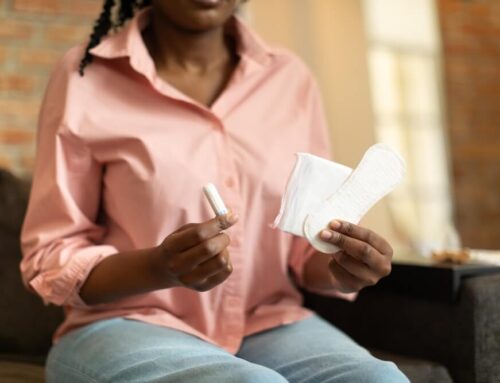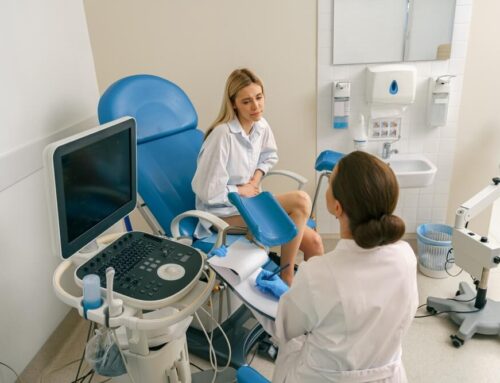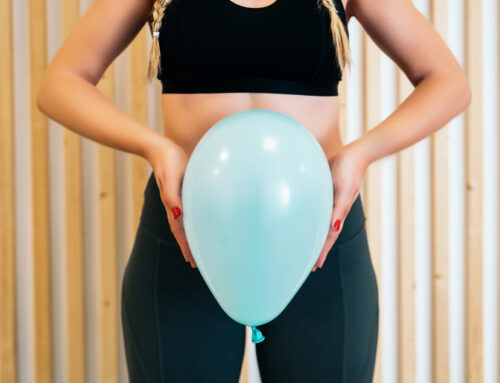The vaginal muscles are elastic, meaning they can stretch and restore their standard form. However, the vaginal muscles may weaken with age and after giving birth, which could be what causes a loose vagina at some point. Contrary to common belief, sexual activity does not permanently affect vaginal tension.
The pelvic floor muscles protect the vaginal area. These can deteriorate with time, leading to the sensation of vaginal looseness.
Incontinence is just one symptom of pelvic floor muscular weakness, which can manifest in a variety of ways. Vaginal muscle strength can be improved if you perform pelvic floor exercises.
In this post, we separate fiction from reality regarding the loose vagina and learn practical methods for strengthening the pelvic floor. If you want to discuss this condition and potential treatment options for your particular needs, you can always count on us at Fern F. Taisenchoy-Bent, MD, LLC.
Sexual Intercourse
The vaginal muscles loosen due to sexual desire, allowing for more intimate sex.
Foreplay can be crucial because these muscles take a while to loosen up. The vagina regains its normal shape and tension right after a sexual encounter.
Myths abound regarding how penetrative intercourse changes a woman’s body. None of the research suggests that regular sex is what causes a loose vagina.
The vagina stretching happens momentarily, before, during, and after sexual activity. This is analogous to how the mouth opens wider than usual to eat or yawn and then closes back to its regular size and form.
A thin membrane called the hymen surrounds the genital area. When a woman has penetrating sex for the first time, she may experience a sensation of an increased vaginal opening due to the stretching of her hymen.
Since no two bodies are alike, the experience of having sex with a new partner can be quite unique. Changes in the body occur naturally as a result of aging, fluctuations in weight, and disease.
Changing sexual positions can occasionally alter the sensation of vaginal looseness or tightness. The sexual experience could be more fulfilling for both partners that way.
Giving Birth

During pregnancy and the postpartum period, the body goes through many changes. These may consist of the following:
- Changes in breast size and form
- Weight fluctuations
- Leg and foot swelling
- The appearance of stretch marks on the skin
It is normal for vagina stretching to occur during natural birth. Slowly, this stretched form returns to its original size. It may take some time to get used to the fact that your vaginal muscles don’t feel quite the same after giving birth.
After childbirth, some women experience a change in vaginal looseness, suppleness, or shape. A woman’s sex experiences may be less intense or satisfying, but she should feel better in time.
Vulvar and vaginal alterations and loose labia can also be brought on by perineal muscle, skin, or tissue damage during labor. This may affect how comfortable or restricted the vagina feels.
Pregnancies that occur after a woman has reached the age of 30 tend to result in more obvious physical changes, such as a loose vagina. Younger women’s bodies may be quicker to recover from pregnancy.
The Aging Process
As we get older, our bodies undergo natural transformations. Skin and muscles lose some of their firmness and flexibility over time, which may also be what causes a loose vagina over time.
The estrogen levels in a woman’s body decrease as she approaches and enters menopause. Because of this, the vaginal lining may become dry and less elastic.
After menopause, the vagina can shrink in size. There’s also the possibility of pain during sex, brought on by a lack of lubricant.
Sexual activity can help maintain vaginal thickness after menopause. Lubrication can improve the ease and pleasure of the sexual activity.
Changes in the vaginal lining are common symptoms of perimenopause and menopause. The vagina may dry out, which could alter the sensation of intercourse. A doctor can help determine if a hormonal cream will work for you.
Possible Treatment Options

The pelvic floor muscles protect the vaginal area by supporting the pelvic floor, uterus, bladder, and rectum. Vaginal discomfort can subside as these muscles relax.
The pelvic floor muscles can be strengthened with the repetition of specific workouts. Regular exercises can enhance vaginal health and how it feels and even make loose labia firmer.
Solid pelvic floor muscles might help you avoid embarrassing situations like incontinence and potentially more severe ones like organ prolapse.
Most people who want to strengthen their pelvic floor do Kegels. They are simple to implement and unobtrusive, with only the following steps required:
- Identify the appropriate muscles and work on stopping urine flow when peeing. The muscles you engage are those in the pelvic floor. However, it’s not good for your bladder health to practice Kegels every time you have to go.
- The second step is to pick a time when you won’t be disturbed so you can focus on relaxing and squeezing your pelvic floor muscles.
- As soon as squeezing these muscles becomes comfortable, hold the position. Gradually, aim to maintain a 10-second squeeze.
- Fourth, relax the muscles for three full seconds.
- Increase the number of repetitions until you can do the whole set ten times in a row.
Your entire body should be at ease. Relax your other muscle groups, especially your abdominals and posterior musculature. Continue your regular breathing pattern when performing Kegel exercises.
You should do 10 Kegels three times a day, in sets of two to three. It may take up to six months to see an improvement in your strength, as is the case with any form of training.
A number of smartphone apps can monitor pelvic floor exercises. There are also vaginal aids that can be used to make these activities easier. Make sure you’re only using tools made for this function. Some of these tools also monitor muscular strength.
To strengthen the pelvic floor muscles, a physician may recommend vaginal rejuvenation. There is more to vaginal rejuvenation than meets the eye. You should consider it a medical procedure that will benefit your physical and mental health.
For instance, ThermiVA is a non-invasive, cutting-edge method for vaginal rejuvenation that may also be used to tighten the tissues that line the inside of the vagina, not only the exterior.
It helps your body generate more vaginal lubricant, reducing the risk of discomfort or pain during sex and heightening sensation, resulting in more exciting and satisfying sexual experiences. The potentially loose labia also benefit from the tightening action, looking better as a result.
It is not until pelvic organ prolapse occurs that surgery is recommended. Restoring the normal anatomy of the bladder, vagina, and rectum is possible through surgical intervention.
There is no proof that vagina-tightening lotions or other medications actually work.
To Conclude
Over time, your body undergoes many changes that affect how your vagina and labia look and feel. Even though Kegel exercises help build a stronger pelvic floor, they won’t help with a loose vagina or more severe cases of vagina stretching. This is where vaginal rejuvenation can make a huge difference. That said, you may want to consider contacting a ThermiVA vaginal health specialist in Margate, Florida, and discuss your situation in more detail.










